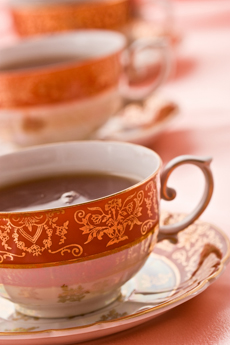TIP OF THE DAY: Best Water For Tea
 The source of the water changes the flavor of the tea. Photo by A.G. Photographer | CSP. |
This tip is for people who love fine tea and drink it straight—no milk, no sweetener, no lemon.
It comes from Sebastian Beckwith, owner of In Pursuit Of Tea in the TriBeCa neighborhood of New York City. Just as water imparts flavor nuances to everything—from pizza crusts and bagels to Scotch—it makes a difference when brewing a cup of tea. “Recently I’ve been experimenting with water for brewing my tea,” writes Sebastian. “It’s fascinating how different the same tea can taste when brewed with different waters. Each water draws distinct characteristics out of the leaves, and one type of water is not necessarily better than another. For instance, many people warn against using distilled water, believing that the lack of minerals results in a flatter taste. I find, though, that some teas shine when prepared with it. For today’s tip, I chose three types of water: a reverse-osmosis filtered water that we use here in the shop; a soft, slightly acidic spring water; and a distilled water. We tasted them with a sencha (green) tea and an oolong tea, using the same parameters for each water.” |
|
|
Sencha Water Test Oolong Water Test Water is crucial to making a good cup of tea, so play around with different types (tap, filtered, bottled) and see what you like best. More About Water & Tea
|
||


